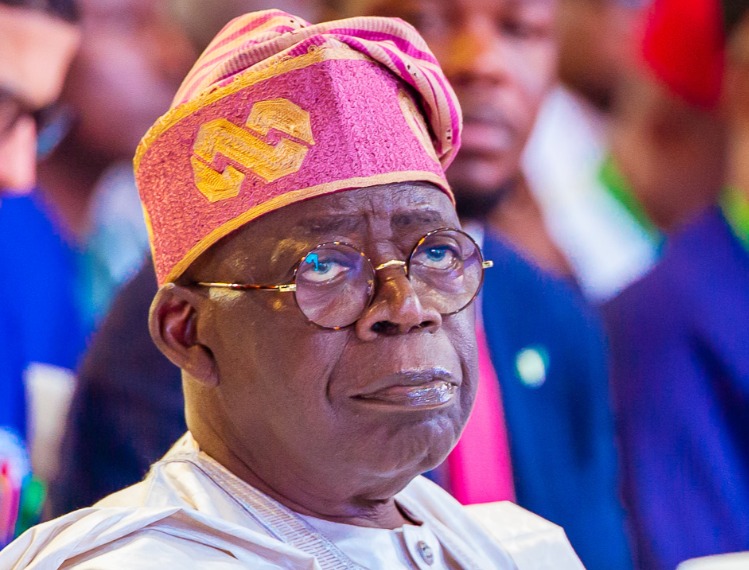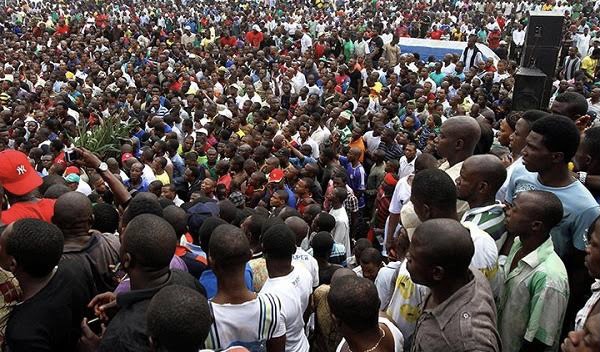Nigerian lawmakers shut down planned vote of confidence in Bola Tinubu over deadly hunger, stagflation
 Fierce resistance from irate members forced the House leadership to abandon a proposed resolution for a confidence vote in President Bola Tinubu this week, Peoples Gazette heard from parliamentary sources, in a spat that accentuates the broadening fissures within the ruling party over desperate economic certitude assailing the country.
Fierce resistance from irate members forced the House leadership to abandon a proposed resolution for a confidence vote in President Bola Tinubu this week, Peoples Gazette heard from parliamentary sources, in a spat that accentuates the broadening fissures within the ruling party over desperate economic certitude assailing the country.
Phillip Agbese, a lawmaker of the ruling All Progressives Congress from Benue, was at the heart of the controversial proposal that sought to place members on the record for a solidarity stunt on behalf of the president at a time cities across the country convulsed in protests over widespread hunger inflamed by historic inflation and joblessness.

“Recent events in the country have shown that His Excellency, President Bola Tinubu, is not sleeping on the problems bedevilling the nation,” Mr Agbese said in a forum of lawmakers on Saturday. “Therefore, I am moving a motion for the parliament to pass a vote of confidence on Mr President.”
Mr Agbese also praised Speaker Tajudeen Abbas for driving parliamentary efforts to help bring succour to Nigerians and sought co-sponsorship from other interested members ahead of its deliberation on Tuesday.
But the proposed vote drew anger among lawmakers, who swiftly quashed it as insensitive and too risky at a time when Nigerians are being devastated by hunger, skyrocketing commodity prices and over 50 per cent youth unemployment.

“We cannot be passing a vote of confidence in a president who has been presiding over unprecedented levels of hardship in this country,” another APC member said from another North-Central state. “Our constituents might not look kindly at us if we pass this resolution for now.”
Abiodun Faleke, also of the ruling party from Lagos, tried to push the resolution through, telling lawmakers it would significantly burnish the president’s image in a time of national economic peril.
Speaker Tajudeen Abbas was also ready to support the bill, but only if the sponsors could whip enough votes to see it through. The House has about 170 members of the ruling APC, with the main opposition Peoples Democratic Party holding 118 seats while the third-largest party Labour has 35 members. The resolution could have scaled easily on a simple majority vote because opposition members rarely disagree with the ruling party caucus.
But most lawmakers quickly vented their outrage about the motion, prompting Mr Agbese to withdraw it before it was due for presentation on February 27.
Mr Agbese told The Gazette the bill was not to show disdain towards Nigerians, but only to let the president know that his administration enjoys House’s confidence in its days.

“I understand the ongoing hardship across the country, no one can take that fact away,” Mr Agbese said. “I only proposed the motion to give the president’s appeal before Nigerians because times are difficult and he has been trying his best.”
Mr Agbese, however, expressed respect for his colleagues despite the vote’s failure, even though he said many of them betrayed him in the process.
“Some of those who spoke against the motion in our forum or leaked it had personally reached out to me and expressed their willingness to second the motion,” he added.
It was unclear if the president, who left for a summit in Qatar yesterday, knew about the proposed vote. A State House spokesman did not return a message seeking comments about the implications of the collapse of the confidence vote.
Mr Tinubu assumed office in May 2023, when the U.S. dollar was exchanging at about N425. The rate has since increased rapidly, peaking at N1,900 at both official and black market bargains last week before after the government launched a nationwide assault on money changers and alleged speculators, which purportedly include cryptocurrency platforms Binance and Coinbase.
Together with the removal of subsidy on petrol, the foreign exchange crisis has led directly to high inflation rates — 32 per cent last month — and fast-spreading hunger among the 200 million-strong population.
Several Nigerian cities, including Kano and Ibadan, held demonstrations throughout the month after rice, bread and other basic food items became unaffordable to wage earners and labourers. Nigerian youth employment hovered around 51 per cent when Mr Tinubu assumed office, and has worsened ever since.
The administration has said it was doing its best to address the crisis, which first became pronounced under President Muhammadu Buhari. New reforms, ranging from the floating of national currency to easing of regulatory red tapes, are being touted as top solutions, although the government acknowledged only results would assuage growing frustration among Nigerians.













